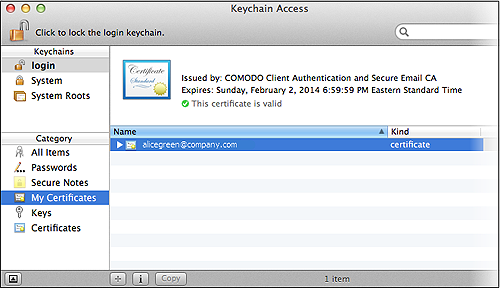Oct 23, 2017 How To: Create SSH Remote Login Mac OS X and Force Private Key Authentication Only - Putty This guide will show you how to enable SSH (remote login) on your Mac OS X machine and connect to it using a private key file (.ppk) while disabling password logins (more secure).
I can no longer download transactions from CIBC into Quicken 2016 (Canada). Is anyone else having this problem? Question Updated 1 year ago Answered Helpful? If you purchased a Quicken download, you won't need a CD drive. However, if you have a CD and would like to install Quicken on a computer without a CD drive, you have some options. If you are using an older version of Quicken, you can upgrade to the latest version of Quicken. Quicken 2016 for mac canno longer download.
Still can't quite get it to work. My private key file (named id_dsa) is now located in the ~/.ssh dir. Here is the output from verbose mode: dstites$ ssh -v lore.cs.purdue.edu OpenSSH_4.5p1, OpenSSL 0.9.7l 28 Sep 2006 debug1: Reading configuration data /etc/ssh_config debug1: Connecting to lore.cs.purdue.edu [128.10.2.16] port 22. Debug1: Connection established. When it's done correctly, you don't have to create directories or move key files around. Also the correct permissions are set by default.
I can't help wondering if permissions or exact file names might be wrong because they weren't initially set up correctly for you. You might consider deleting all the ssh files you created, including the ~/.ssh directory and starting from scratch. When you run ssh-keygen, when it prompts you for file names for the key files, just press return to take the defaults. This should correctly set everything up for you on the local machine. Then, you need to append the contents of the public key file to ~/.ssh/authorized_keys on the remote host as before. You show your login attempt as ssh -v lore.cs.purdue.edu.
This presumes your remote username matches that on your Mac. Otherwise, you need to say ssh -v username@lore.cs.purdue.edu. You might consider deleting all the ssh files you created, including the ~/.ssh directory and starting from scratch. I took your suggestion and removed.ssh on my local and remote machine.
I generated the two key-pairs as you suggested (default) and it generated id_rsa and id_rsa.pub. I put the.pub key into ~/.ssh/authorized_hosts on the remote machine.
I am now prompted with the following everytime: Davids-MacBook-Pro:~/.ssh dstites$ ssh lore.cs.purdue.edu Enter passphrase for key '/Users/dstites/.ssh/id_rsa': For reference, my username on both machines are the same so I wouldn't need to specify username@host. Enter passphrase for key '/Users/dstites/.ssh/id_rsa': When you ran ssh-keygen, you should have got the following prompt: Enter passphrase (empty for no passphrase): If you have entered any passphrase here, then you should enter the same passphrase every time you ssh using id_rsa; this is good for security but rather inconvenient.
If you had just hit Enter (empty passphrase) then you should be able to ssh without entering any passphrase. PS Please make sure that not only the.ssh directory but also your home directory is writable only by you. PowerMacG4, PowerBookG4, iMac(C2D) Mac OS X (10.4.9).

Apple Footer • This site contains user submitted content, comments and opinions and is for informational purposes only. Apple may provide or recommend responses as a possible solution based on the information provided; every potential issue may involve several factors not detailed in the conversations captured in an electronic forum and Apple can therefore provide no guarantee as to the efficacy of any proposed solutions on the community forums.
Apple disclaims any and all liability for the acts, omissions and conduct of any third parties in connection with or related to your use of the site. All postings and use of the content on this site are subject to the.